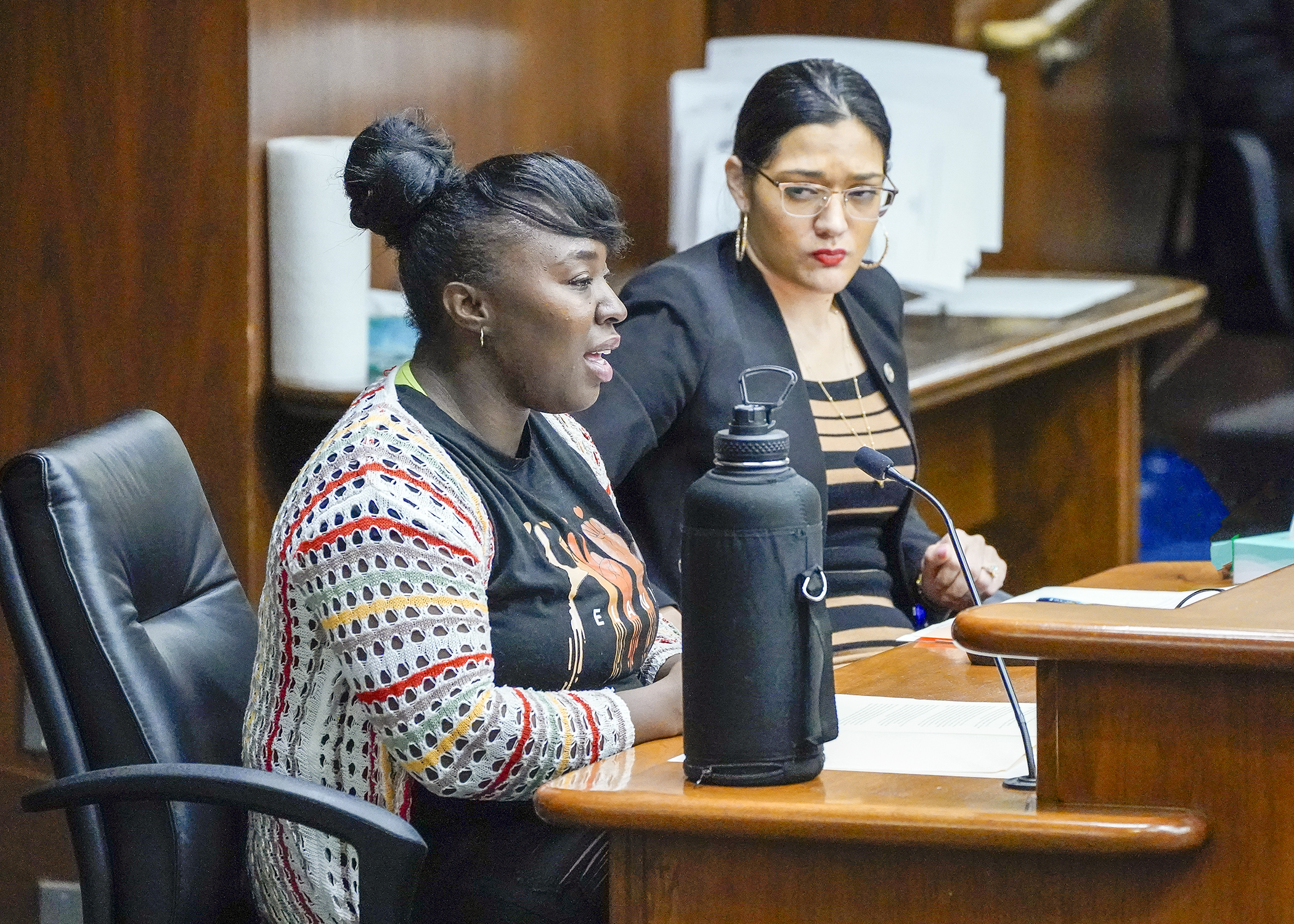Housing panel OKs bill that would protect tenants from landlords’ retaliation

Marion Butler has a pest problem. As does everyone else at her apartment complex, according to the Brooklyn Park resident. She also has mold, water damage, cabinets that need to be replaced, and a back door that isn’t secure.
So Butler complained to her landlord about the issues and, eventually, to the city’s inspections department. She ended up speaking at city council meetings on behalf of herself and her fellow tenants.
Soon thereafter, she was notified by her landlord that she was in violation of her lease and was being fined $300.
“I’ve spoken with my lawyer and nowhere in my lease does it say anything about lease violations for unsanitary conditions,” Butler told the House Housing Finance and Policy Committee Wednesday. “Or, more importantly, what fees are charged in accordance with these violations. The fee recently went up from $300 to $350.”
Butler believes her landlord is retaliating against her for organizing her fellow tenants to complain about their substandard housing. And she says her neighbors are suffering a similar plight. But she hopes that HF2704, a bill sponsored by Rep. María Isa Pérez-Vega (DFL-St. Paul), will protect her and others in her predicament.
It would establish a right to organize for tenants living in a residential building and require landlords to allow certain organizing activities to happen at the residential building. The bill would prevent retaliation by a landlord for organizing and also impose penalties for landlords who violate this law.
The committee approved the bill, as amended, by a 7-5 party line vote and referred it to the House Judiciary Finance and Civil Law Committee.
Butler isn’t alone in her difficulties.
Jafar Aliweyd is a volunteer for the New American Development Center, a nonprofit that assists low-income people in the Somali and East African communities.
“We have tenants who ask us to speak on their behalf to their landlords,” he said. “Some of the tenants have stoves that weren’t working and they were forced to buy meals instead of cooking for their families. One of the landlords told us that he can’t repair stoves because your people like to cook a lot, meaning the Somali community.”
The bill would provide rights to tenants and permit tenant organizers to distribute information in their building, contact tenants in the building, and hold meetings in the building about organizing as a tenant group. It would also prevent landlords from prohibiting tenant organizations from the building, or requiring prior permission to do organizing activities, and prevent retaliation by the landlord against organizing tenants.
It would impose a penalty of $1,000 per violation that a tenant could recover along with reasonable attorney fees.
“California, New York, the District of Columbia and numerous cities across the country explicitly protect tenants’ rights to organize,” Pèrez-Vega said. “The imbalance of power between landlords and tenants has a catastrophic impact on vulnerable Minnesotans who lack the resources to fight back against unjust lease requirements and uninhabitable living conditions.”
Jennifer Gordon, chief operating officer of Bader Companies, oversees 12,000 units of local housing. She expressed concern that the legislation would “permit unrecognized individuals access to a building,” and that was the chief focus of objections from Republicans.
Related Articles
Search Session Daily
Advanced Search OptionsPriority Dailies
Ways and Means Committee OKs proposed $512 million supplemental budget on party-line vote
By Mike Cook Meeting more needs or fiscal irresponsibility is one way to sum up the differences among the two parties on a supplemental spending package a year after a $72 billion state budg...
Meeting more needs or fiscal irresponsibility is one way to sum up the differences among the two parties on a supplemental spending package a year after a $72 billion state budg...
Minnesota’s projected budget surplus balloons to $3.7 billion, but fiscal pressure still looms
By Rob Hubbard Just as Minnesota has experienced a warmer winter than usual, so has the state’s budget outlook warmed over the past few months.
On Thursday, Minnesota Management and Budget...
Just as Minnesota has experienced a warmer winter than usual, so has the state’s budget outlook warmed over the past few months.
On Thursday, Minnesota Management and Budget...